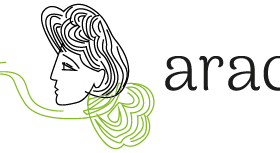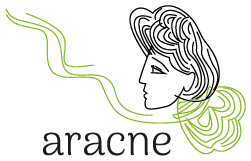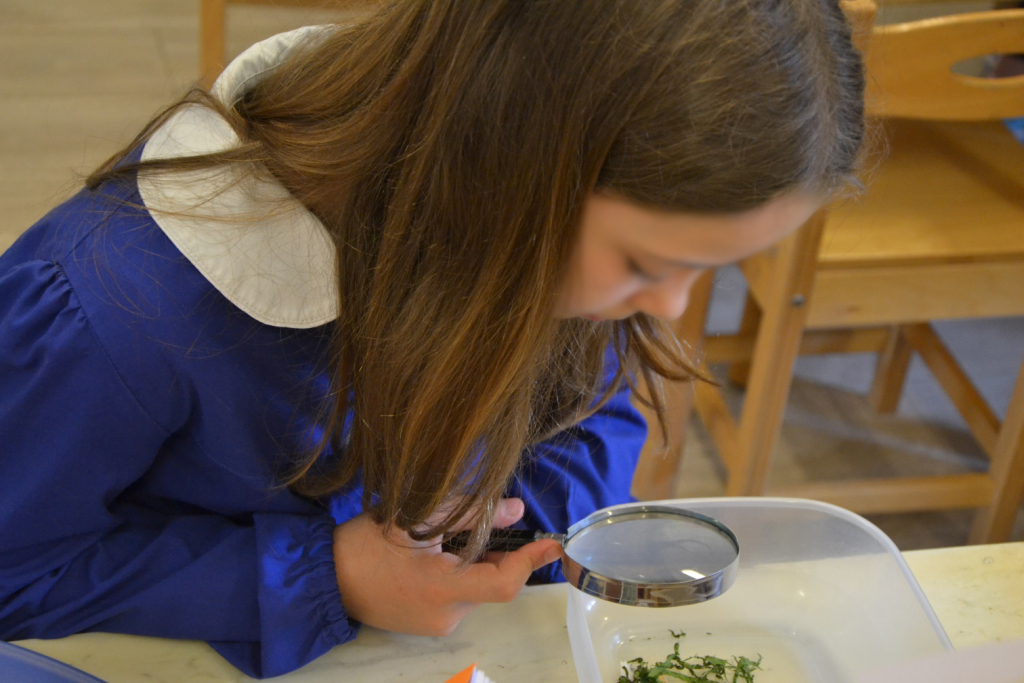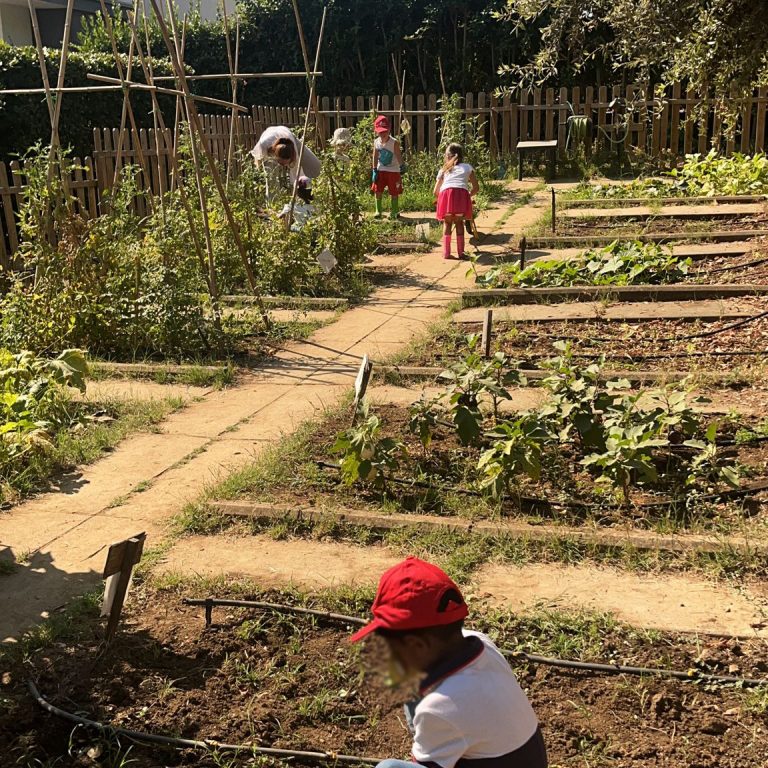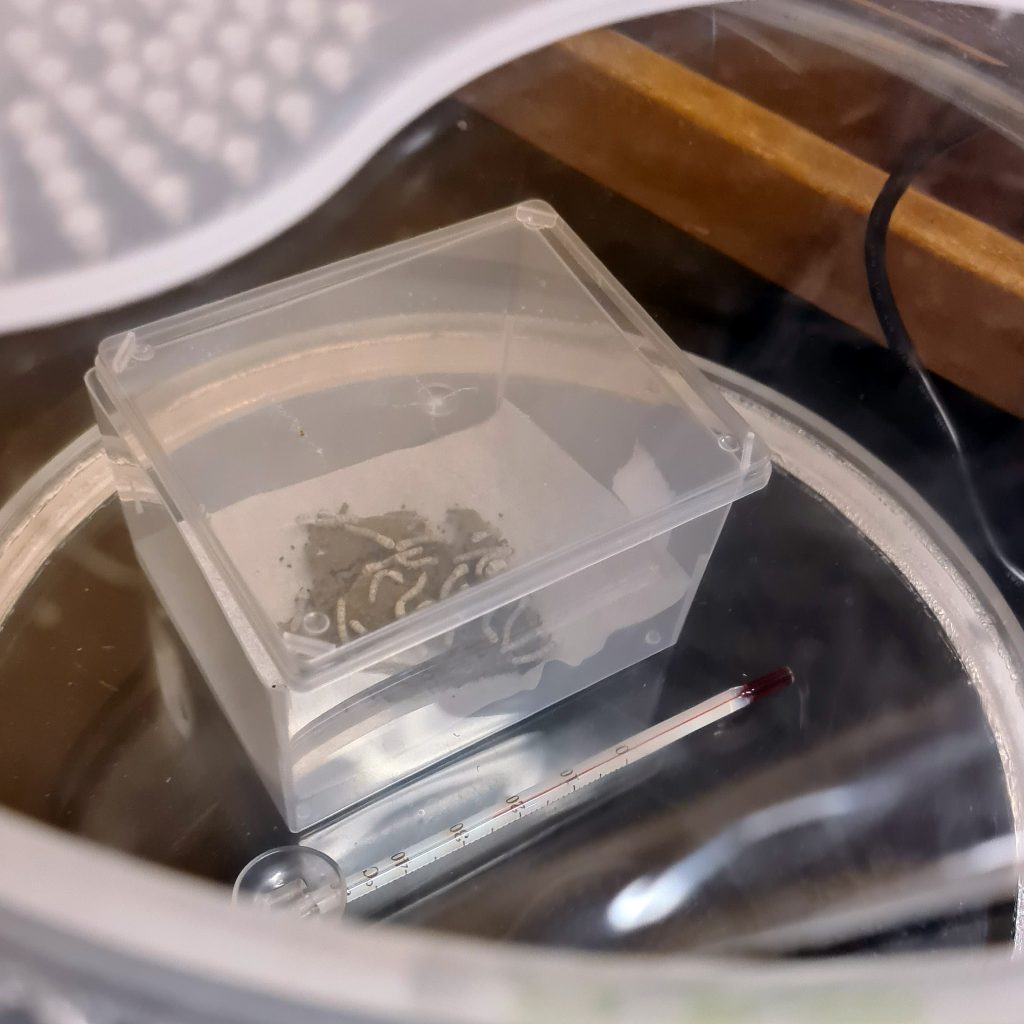In May 2024, at the “Paolina Poggi” Montessori nursery and primary school in Mentana, in the province of Rome, a project was launched to bring silkworms to the children.
At the beginning of the 1990s, the “Paolina Poggi” school began to base its teaching on the pedagogical ideas of Maria Montessori, who proposed a school environment that was particularly attentive to the needs of the children and therefore articulated and dynamic. Education in critical thinking and responsibility for one’s own choices also involves experiential activities, such as those in contact with nature. This is why, about 15 years ago, Graziella Paglia (actually technician at CREA) designed and built a teaching garden in which the children, supported by their teachers, play an active role.
One of the cornerstones of the Montessori method is to create an organised environment with learning materials that stimulate the child’s interest and autonomy. The ‘Paolina Poggi’ school has introduced the ‘nature table’, which allows the children to directly observe the nature around them. This initiative also allowed the school to host the hatching of silkworms, provided by CREA – Sericulture Laboratory of Padua. For years, the laboratory has been providing free eggs to schools that request them, along with a brief guide to rear them.
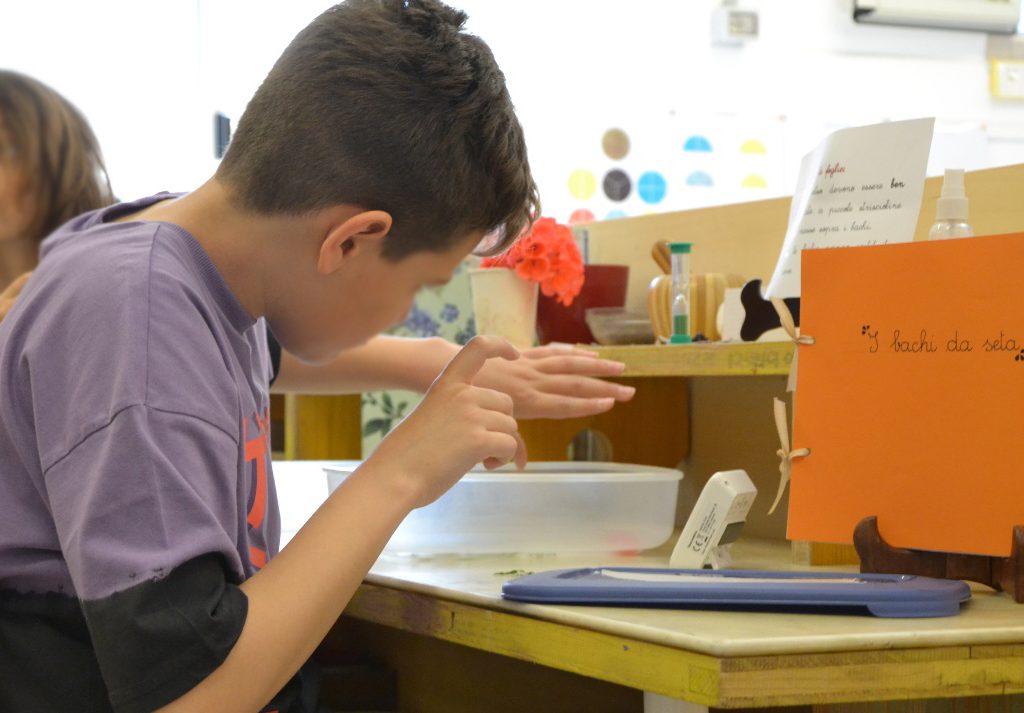
The first phase of the experiment was devoted to teacher training, which was carried out by the CREA technician Graziella Paglia. After some introductory lessons, she provided the teaching materials and ongoing support for the activities to the teachers.
On 17 May, the eggs were given to the students, who carefully placed them in transparent plastic containers with lids and a small piece of wet paper to regulate humidity, following the instructions provided. After an introduction to the life cycle of the silkworm, explained by the teachers, the children, from the kindergarten and the different classes of the primary school, showed great curiosity, which they were able to satisfy by closely observing the eggs. Each day, one or more children were assigned to ensure that the eggs were kept in a humid environment and at the right temperature until they hatched. The silkworms were carefully fed, but a sudden drop in temperature or contaminated leaves (the leaves were collected outside the school park) prevented the experiment from being completed. A mulberry tree about three years old has been planted in the “Paolina Poggi” teaching garden, which will allow for greater availability and control over the quality of the leaves used for feeding the silkworms.
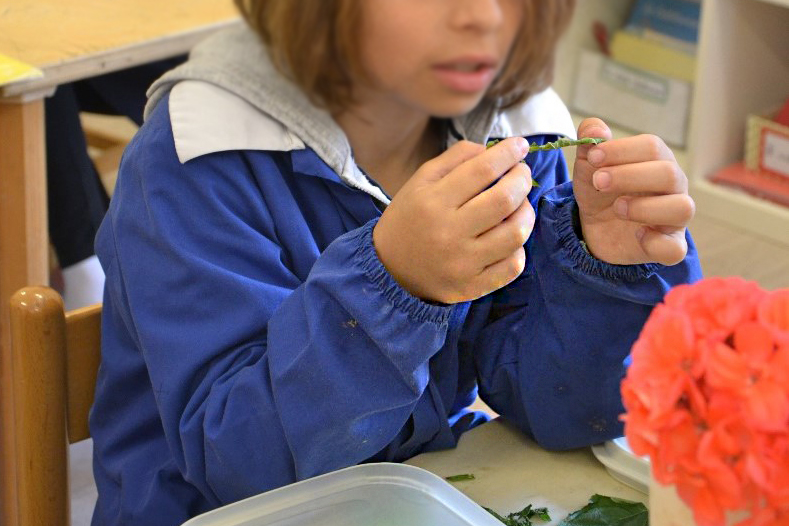
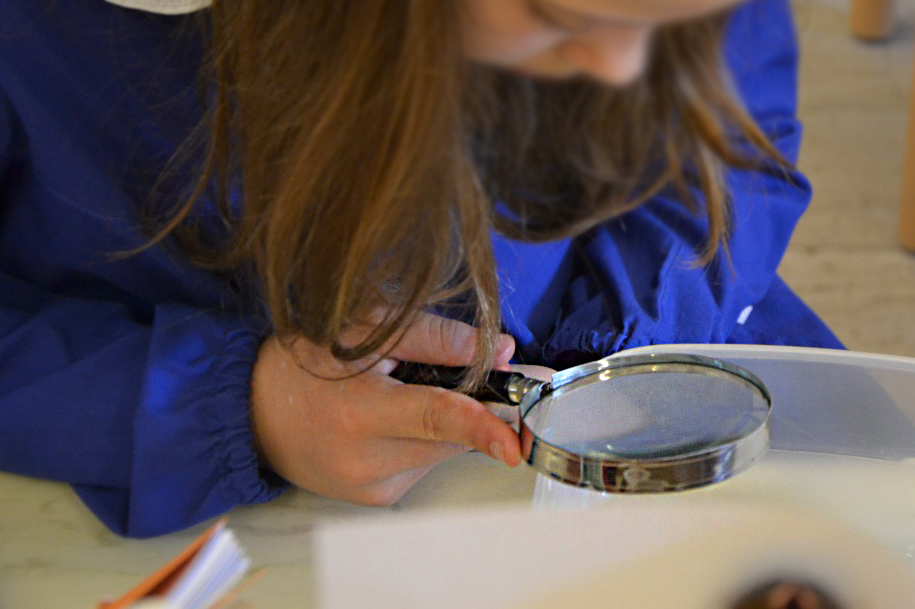
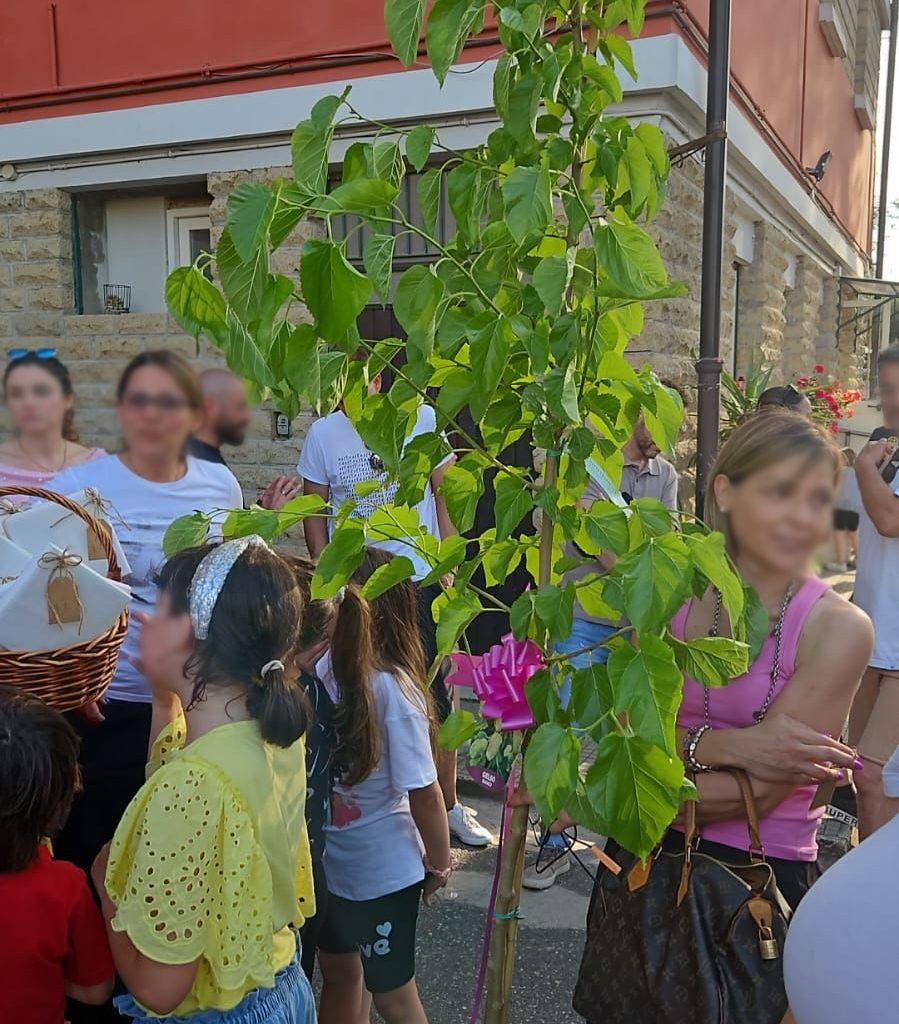
The ARACNE project aims to develop a prototype educational kit that will enable schools to rear silkworms under controlled conditions of temperature and humidity, precisely to prevent sudden changes from causing the animals to die. The kit is designed to allow rearing on an artificial diet even when mulberry leaves are not available, thus meeting the educational needs of all partner countries in the project.
With the start of the new school year, testing of the kit will be extended to selected schools in several partner countries. The kits will continue to be available to the schools so that they can plan the experience with their students on an annual basis.
